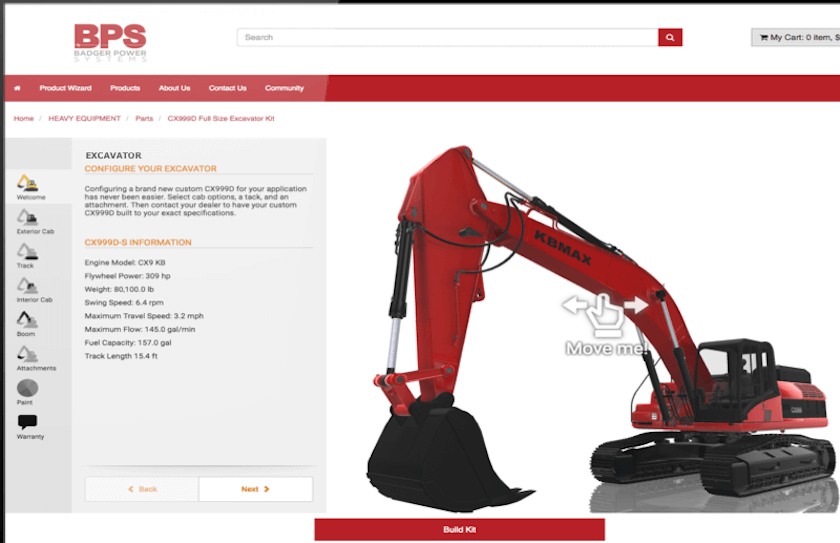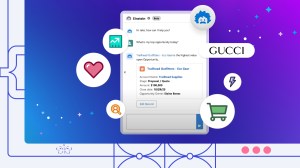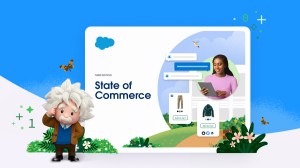“The easiest, smartest and most connected digital experience sets the bar for everything else—whether you’re a consumer or a business user.” — Bret Taylor, President and Chief Product Officer, Salesforce
Today, we are excited to announce B2B Commerce from Salesforce, the latest offering in our Salesforce Commerce Cloud portfolio. Built natively on the Salesforce platform, B2B Commerce enables companies to create the same richly branded ecommerce experiences for business buyers as our other Commerce Cloud offerings deliver for consumers. [Click to Tweet] Now, brands can provide intelligent, unified commerce experiences across every channel and across every part of their business.
For example, a large sporting goods manufacturer sells shoes directly to consumers via its ecommerce site. The experience is easy, personalized and always available. This same manufacturer also sells product inventory to third party retailers and distributors who are stocking their shelves for the upcoming season. Now businesses can rely on Salesforce to meet the complex ecommerce needs of this B2B use case with the same ease and convenience of the B2C use case. That’s Salesforce B2B Commerce.
B2B Commerce has traditionally been difficult. According to the recent Salesforce State of the Connected Customer report, 82 percent of business buyers want the same experience as when they’re buying for themselves, but only 27 percent say companies generally excel at meeting their standards for an overall B2B experience. With Salesforce B2B Commerce, brands can deliver exceptional digital buying experiences for B2B buyers, rapidly adapting to market dynamics and customer needs. Now, customers can:
- Provide a consumer-like user experience that makes business buying easy and efficient.
- Drive efficiency with powerful B2B commerce features like account hierarchies, complex pricing, custom catalogs, account management and flexible purchase and shipping options.
- Manage multiple commerce models, including subscriptions, multi-storefront, multi-distributors, marketplaces and more.
- Combine B2B commerce with CRM workflow and customer data, like accounts and contacts, for a single, complete view of the customer.
- Create a seamless customer experience across B2B commerce, marketing, sales, communities, and service, all on the world’s #1 CRM platform.
According to Forrester Research1, the B2B commerce industry is expected to grow from $889 billion today to $1.2 trillion by 2021, and capturing this opportunity has never been more important for businesses. With the addition of B2B Commerce to the Commerce Cloud, Salesforce and its customers can now take advantage of this shift to digital commerce. It enables business buyers to browse and purchase online as easily as consumers shop today, but still provides the B2B-specific functionality required for complex business purchases, like custom catalogs, authenticated logins, one-click re-ordering for large orders, multiple shipping locations and payment types, and the ability to place orders with hundreds or thousands of SKUs — as a retailer might when ordering merchandise from a brand for an entire season. This also lets our customers, their distributors, and ultimately their buyers seamlessly combine commerce and CRM data for a complete view of the customer or account.
Global leaders in consumer goods and manufacturing like Adidas, Brady, Ecolab, Land O’ Lakes, and Univar already rely on Commerce Cloud to power their B2B commerce businesses. Commerce Cloud enables B2B and B2C companies to grow sales, reduce costs, and provide the exceptional ecommerce experiences for their customers.
Interested in learning more? Download our new report: Why Digital Will Become the Primary Channel for B2B Engagement.
We’re publishing a series of articles focused on the future of customer experience in conjunction with Connections, June 12-14 in Chicago. For more insight, check out this 5-point checklist for exceptional customer experience; this article on why customer experience begins with understanding human nature; and this interview with Glen Hartman of Accenture on the power of empathy in creating personalized customer experiences.


















